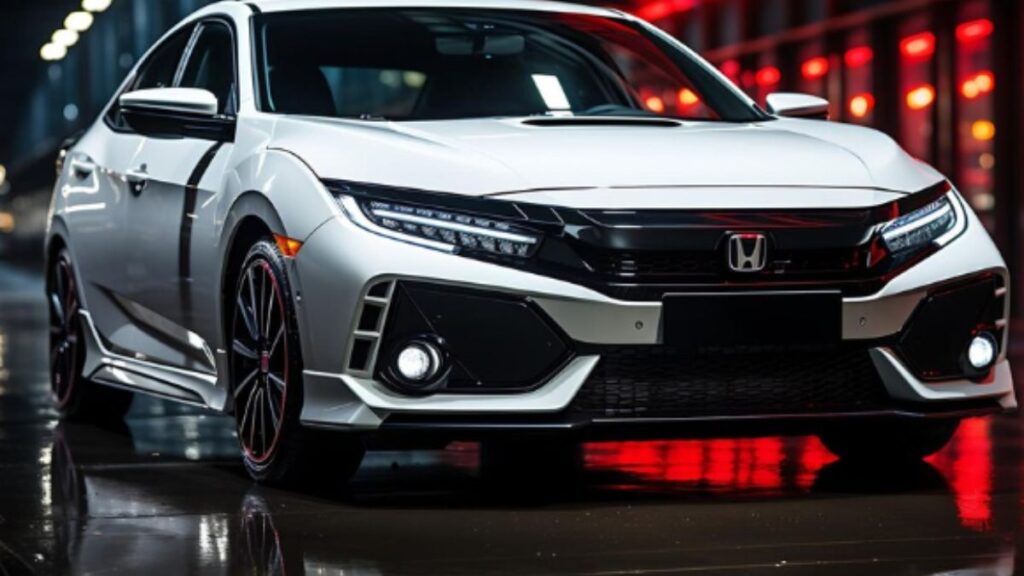When it comes to dependable, stylish, and fuel-efficient sedans, the used Honda Civic consistently ranks among the top choices for car buyers around the world. For decades, this model has earned a reputation for reliability, affordability, and a sleek driving experience. Whether you are a first-time buyer, a student looking for a budget-friendly option, or simply someone who appreciates value for money, choosing a used Honda Civic can be a smart and rewarding decision. In this comprehensive guide, we’ll cover everything you need to know before buying a used Honda Civic — including models to consider, pricing trends, what to check during inspection, ownership costs, and how it compares with other sedans.
Why Choose a Used Honda Civic?
The Honda Civic has been one of the best-selling compact cars for several years. Its reliability is often compared to premium brands, yet its pricing is far more accessible. A used Honda Civic can offer the same experience as a brand-new car — smooth handling, modern interiors, and excellent fuel economy — at a fraction of the cost.
Moreover, the Civic is known for its long-lasting performance. Many owners have reported their Civics running over 200,000 miles with minimal issues. That’s because Honda’s engineering standards focus on durability, making a used Honda Civic not just a temporary solution, but a long-term investment.
Another factor that adds to its popularity is versatility. Whether you prefer a sedan, coupe, or hatchback, you can find a used Honda Civic that suits your lifestyle. Over the years, it has also evolved to include advanced tech features such as infotainment systems, rearview cameras, Bluetooth, lane assist, and adaptive cruise control — even in older models.
Popular Models of Used Honda Civic to Consider
There are multiple generations of the Honda Civic available in the used car market. Here’s a breakdown of some of the most sought-after models in recent years:
1. 2012–2015 Honda Civic:
These models are part of the 9th generation. They offer decent fuel efficiency (around 28–39 mpg) and come with improved safety features. The 2013 and 2014 models, in particular, have upgraded interiors and better crash-test ratings.
2. 2016–2021 Honda Civic:
The 10th generation was a game-changer in design and performance. It featured a more aggressive and modern look with enhanced engine options, including a turbocharged 1.5L engine in some trims. These models also included more advanced tech features and improved suspension.
3. 2006–2011 Honda Civic:
While slightly older, these 8th-gen models are still reliable. They offer solid mileage and cost even less on the used market. Their simpler design appeals to buyers who want a no-nonsense, easy-to-maintain vehicle.
4. Civic Si and Civic Type R:
If you’re into performance, the Civic Si (available in multiple generations) offers a sportier driving experience. The Civic Type R, although more expensive, is a high-performance hatchback that competes with sports cars in its class.
Here’s a quick comparison table of three popular used Honda Civic generations:
| Model Year Range | Avg. Price (USD) | MPG (City/Highway) | Notable Features |
|---|---|---|---|
| 2012–2015 | $8,000–$13,000 | 28/39 | Basic tech, improved reliability |
| 2016–2021 | $13,000–$23,000 | 30/42 | Turbo engine, touchscreen, safety tech |
| 2006–2011 | $5,000–$9,000 | 26/36 | Simpler design, low maintenance cost |
Expand your knowledge and check out more posts on our blog!
What to Check Before Buying a Used Honda Civic
Before you finalize your decision, it’s essential to inspect certain factors to ensure that you’re getting a good deal. Here are some key areas to look into:
Mileage and Service History:
Mileage plays a major role in determining the life left in the car. Ideally, look for a used Honda Civic with under 100,000 miles and a clean, consistent service record. Ask for oil change records, timing belt replacements, and any major repairs.
Exterior and Interior Condition:
Check the body for rust, dents, and paint fading. Inside, make sure that the seats, dashboard, and electrical components (like A/C, radio, power windows) are functioning properly.
Engine and Transmission Health:
A test drive is crucial. The engine should run smoothly without strange noises. Gear shifting should be effortless. If you notice jerking or delay in gear changes, it might indicate transmission issues.
Tires and Brakes:
Examine the tire condition and ask about the age of the tires. Uneven wear might suggest alignment issues. Test the brakes to ensure they respond quickly and don’t make grinding noises.
Vehicle History Report:
Always request a Carfax or AutoCheck report to confirm accident history, ownership count, and odometer readings.
Have you found this topic useful? For more informative content, check out the rest of our blog!
Ownership Costs: Insurance, Maintenance, and Fuel
Owning a used Honda Civic doesn’t just save you money at purchase — it continues to be cost-efficient throughout your ownership.
Insurance:
Used Civics generally come with lower insurance premiums compared to new vehicles. You can further reduce costs by choosing liability-only coverage for older models.
Maintenance:
Routine maintenance like oil changes, air filters, and tire rotations is quite affordable for the Civic. Honda parts are widely available and not too expensive, making repairs easy and cost-effective.
Fuel Economy:
Another big win for the Civic is its impressive fuel efficiency. Depending on the model and year, a used Honda Civic can deliver anywhere from 28 to 42 miles per gallon. This makes it ideal for both city commuting and long drives.
Here’s a rough estimate of annual ownership costs:
| Expense Category | Estimated Annual Cost (USD) |
|---|---|
| Insurance | $800–$1,200 |
| Routine Maintenance | $300–$600 |
| Fuel (avg. 12,000 mi) | $1,000–$1,500 |
| Registration/Taxes | $100–$300 |
| Total Yearly Cost | $2,200–$3,600 |
Where to Find a Good Deal on a Used Honda Civic
Finding the right Civic depends on how and where you search. Here are some trusted sources:
Certified Pre-Owned (CPO) Honda Dealers:
These vehicles are often slightly more expensive but come with warranties, inspections, and sometimes free maintenance for a limited time. Ideal for peace of mind.
Online Marketplaces:
Websites like CarGurus, Autotrader, and Facebook Marketplace are great for finding local deals. Just make sure to meet in safe places and inspect the vehicle properly.
Private Sellers:
Buying directly from an owner can help you avoid dealer fees, but always have a mechanic inspect the car before purchasing.
Used Car Lots:
Local used car dealerships often have a range of Civics. Negotiate smartly and compare prices online before finalizing.
Benefits of Buying a Used Honda Civic
There are several strong reasons why a used Honda Civic is a better choice compared to other sedans or even new cars:
-
Lower Depreciation:
New cars lose around 20% of their value in the first year. A used Honda Civic has already taken that hit, meaning better resale value when you sell it later. -
Honda Reliability:
Honda is known globally for engineering long-lasting vehicles, and the Civic is its star performer in this regard. -
Availability of Parts and Mechanics:
Since Civics are so common, finding replacement parts or a mechanic who knows the car inside-out is easy. -
Higher Trim Options at Lower Cost:
With the same budget you’d spend on a base model new car, you can get a higher-trim used Civic with more features like sunroof, navigation, or leather seats. -
Eco-Friendly Option:
Buying used helps reduce environmental impact by maximizing the lifespan of a vehicle instead of demanding new manufacturing.
Final Thoughts
If you’re in the market for a budget-friendly, dependable, and efficient vehicle, a used Honda Civic should be on the top of your list. With its blend of long-lasting performance, fuel economy, and modern features, the Civic remains a gold standard in the compact car segment. Whether you’re buying it for daily commuting, long-distance travel, or as a first car, the Civic offers excellent value for money and an overall enjoyable driving experience. Just make sure to inspect it thoroughly, verify the vehicle history, and compare options before finalizing your purchase. Happy car hunting!







